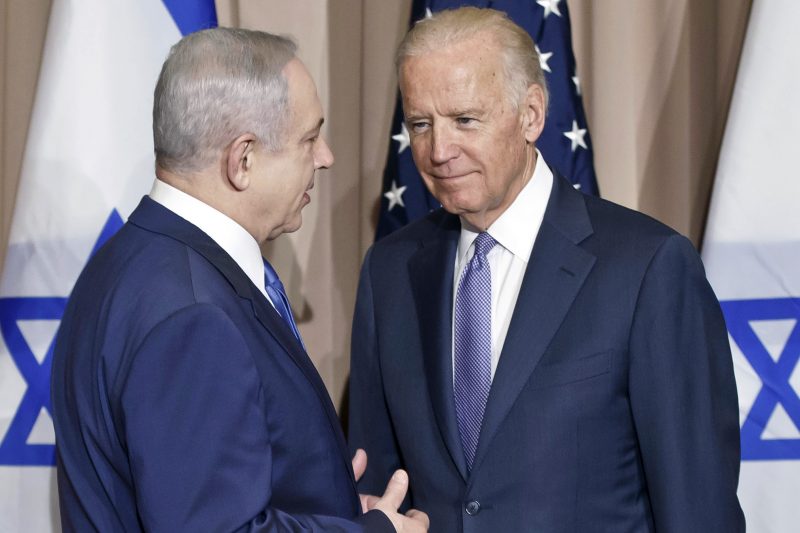President Biden on Monday invited Israeli Prime Minister Benjamin Netanyahu to a meeting in the United States before the year’s end, marking the first such invitation from the White House since Netanyahu was sworn in for a sixth term in December, and a thawing in the relationship between the two leaders.
National Security Council spokesman John Kirby told reporters that Biden and Netanyahu spoke on the phone about “a broad range of global and regional issues,” including efforts to counter threats from Iran, ways to improve the security situation in the West Bank and the United States’s “ironclad, unwavering” commitment to Israel’s security. Biden also condemned recent acts of terror against Israeli citizens.
“[Biden] believes that it was the appropriate time to have a conversation with the prime minister with respect to our relationship, which is a strong relationship,” Kirby said. “And he believed it was the right time to talk about meeting with Prime Minister Netanyahu sometime in the fall.”
When asked whether the meeting would take place at the White House or elsewhere, Kirby said only that Biden and Netanyahu had “agreed that they will meet, probably before the end of this year, and all the details of the wheres and the whens are still being worked out.”
During the call, Biden also broached Netanyahu’s efforts to change the Israeli judicial system, an issue that had inflamed tensions between the two leaders earlier this year. Their disagreement spilled into public view in March — with both leaders exchanging terse public statements — and was widely seen as a large reason Biden had not extended an invitation for Netanyahu to visit the White House sooner.
“President Biden reiterated, in the context of the current debate in Israel about judicial reform, the need for the broadest possible consensus and that shared democratic values have always been and must remain a hallmark of the U.S.-Israel relationship,” Kirby said.
He waved off suggestions that the phone call meant that Biden’s concerns over Netanyahu’s judicial revisions had dissipated.
“Those concerns are still valid,” Kirby said. He added that the president reiterated “our concerns about all of that in his phone call with the prime minister and what we have found to be a useful process here is dialogue and diplomacy. These are two leaders that know each other, have known each other for a long time, and as friends can and friends should speak honestly, openly, forthrightly, candidly.”
The call and invitation came just before Israeli President Isaac Herzog is scheduled to visit Washington this week to mark the 75th anniversary of Israel’s founding. Herzog will address a joint meeting of Congress on Wednesday.
They also came as both Democratic and Republican lawmakers pushed back Monday on comments from Rep. Pramila Jayapal (D-Wash.) characterizing Israel as “a racist state.” She later issued a statement seeking to clarify that she does not “believe the idea of Israel as a nation is racist” and to apologize for her criticisms.
“I do, however, believe that Netanyahu’s extreme right-wing government has engaged in discriminatory and outright racist policies, and that there are extreme racists driving that policy within the leadership of the current government,” Jayapal added.
“We saw that she apologized and we’re glad she did. We think an apology was the right thing to do for those comments,” Kirby said Monday when asked about Jayapal’s remarks. “Our commitment to Israel is ironclad, and we’re going to make that clear and consistent every chance we get.”








